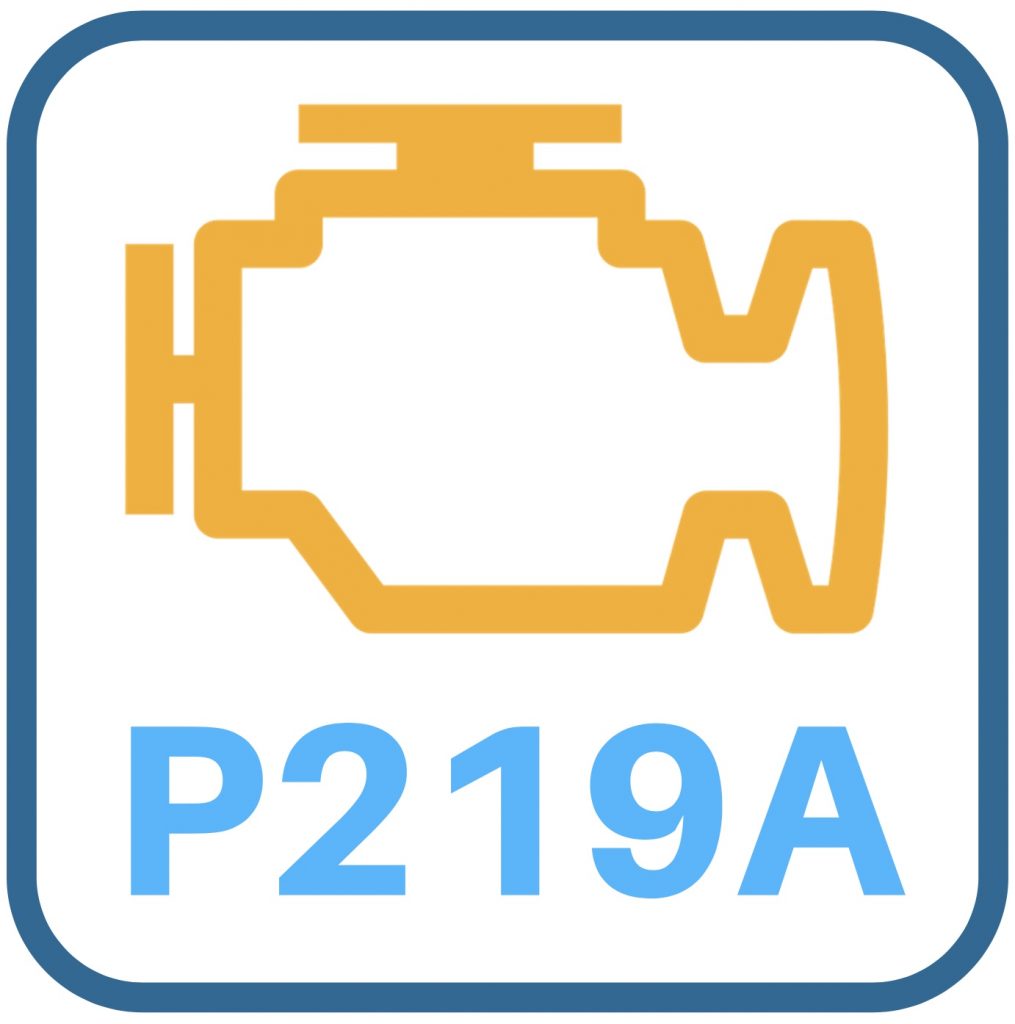P219A is a generic OBDII code. The code indicates that your Ford Galaxy’s air/fuel ratio is out of balance (too rich or too lean).
Your Galaxy is equipped with oxygen sensors that measure the air-fuel ratio of your engine. It’s these sensors that are reporting the problem with the air-fuel ratio.
With P219A are two scenarios:
- The oxygen sensors are correct and the air-fuel ratio is off.
- The oxygen sensors are giving correct data, and the air-fuel ratio is off on bank 1.
P219A Definition: Air Fuel Ratio Imbalance (Bank 1)

The definition of P219A is two parts and relatively straightforward.
1. Air Fuel Ratio- Imbalance
The ideal air/fuel ratio for a gas engine is 14.7 parts air to 1 part fuel (14.7:1). If there is too much fuel or too much air in the mixture, your Galaxy’s air/fuel ratio is considered out of balance.
2. Bank 1
Bank 1 is the side of the engine with the first cylinder. If your Galaxy has an in-line four or in-line six-cylinder engine, you don’t need to worry about this at all. Your engine will have only one head, and therefore only one bank. You can skip down to the next section.
If your Galaxy has a V6 or V8, you need to determine which side of the engine is bank one. The oxygen sensor(s) on the first bank side of the engine is what’s reporting the problem. While it can be annoying trying to determine which side of the engine bank one is on, it makes the diagnosis a little easier since we can use the swap test (more on that later).
P219A Symptoms: Ford Galaxy
Often, the only sign that your vehicle has P219A is the check engine light. Here are some of the symptoms that can occur in the Ford Galaxy:
- Engine Misfire– This can be noticeable misfiring. But, it’s more likely that you’ll only know of the misfiring due to the presence of another trouble code. You’ll likely see either P0300 or P030X, where the X represents the cylinder that is misfiring.
- Check Engine Light– As stated above, the check engine light is often the only symptom of P219A. But, this code is most likely going to be accompanied by another code. This is a good thing. Other codes can help with the process of elimination. You’ll likely get a lean or rich trouble code with P219A, such as P0171 (Bank 1 too lean) or P0172 (Bank 1 too rich). You could also see a MAF-related code or oxygen sensor related code.
- Decreased Fuel Economy– There may or may not be a drop in fuel economy and engine performance with P219A.
P219A Causes + Diagnosis: Ford Galaxy

Here is how you can go about diagnosing P219A at home:
1. Check for Other Codes
P219A is usually accompanied by other trouble codes, which is absolutely where you want to start diagnosing it. As you can see in the symptom section above, many codes can accompany P219A. Each of them provides valuable information as to what’s actually going on.
It is very rare that you would get this code by itself. It doesn’t even tell you if the engine is running rich or lean. It just tells you that it’s doing one of those things.
Address all of the other codes first. P219A will resolve itself along with resolving the other codes.
2. Check for Exhaust Leaks
An exhaust leak can cause your Galaxy’s bank one oxygen sensor’s to report that the air-fuel mixture is off. That’s because the exhaust is escaping without ever passing over the O2 sensor.
Sometimes an exhaust leak can be obvious. You’ll hear it. Sometimes, not so much. Take a look at the exhaust and see if there are any soot marks where the exhaust is escaping.
3. Inspect the Oxygen Sensor Wiring
Taking a quick look at the oxygen sensor wiring can save you a lot of trouble. The wiring to the sensor(s) has a hard life. Taking a look and make sure that it is not cracked or damaged in any way.
An open/short condition can cause an oxygen sensor can send inaccurate data to the PCM/ECM. It only takes a moment and can save a lot of frustration. Repair the harness as necessary.
4. Swap Test (Only Applies to V6 or V8)
While it may have been annoying to determine which side of the engine was bank one, it does come with a big advantage. You can swap the oxygen sensors (between the catalytic converter and the engine) to the other side of the exhaust and see if the code “jumps” to the other side of the engine.
Clear the codes after swapping them. Once you run the engine for a while, P219B should appear if an O2 sensor was causing the problem. If P219A comes back, we know that the O2 sensors are all working correctly and that the problem is more than likely related to the motor. Think vacuum leak, MAF, or bad injector.
Conclusion
Start your repair plan by attacking the other codes that have likely appeared with P219A in your Ford Galaxy. Good luck to you!

